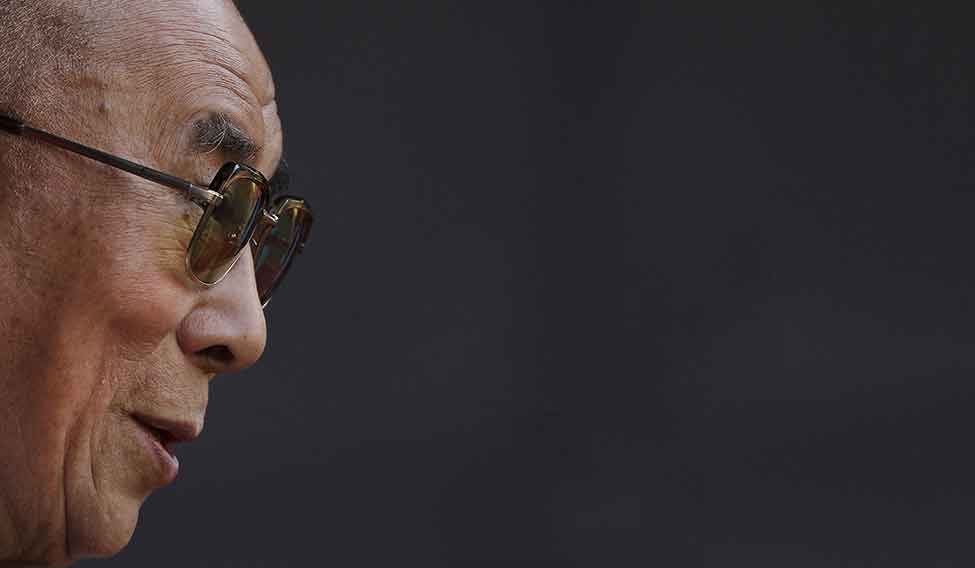The Dalai Lama knows what it is like to be a refugee. Born in 1935 in the Qinghai province of China, the Dalai Lama moved to Lhasa in Tibet in 1939 and later to India in 1959. So, the refugee crisis in Syria makes him sad, but he says that providing asylum wouldn't solve their problem. In an interview, he talks about the futility of violence and the need to teach our children ethics not based on religion but on common sense. Excerpts:
Violence is never justified in the name of religion. Anyone who creates bloodshed in the name of Islam is no longer a practitioner of Islam. It is unthinkable that one human should kill another human being. Is war justified? It is dangerous to say that. But the Second World War protected western democracy and defeated Nazism, so it was worthwhile. The Korean War saved South Korea.
Success means different things to different people. In an economic field, I suppose you become a billionaire. In the scientific field, you might discover something. With religion, I think it is when a practitioner sees God. That is success.
You never stop getting angry about small things. In my case, it is when my staff do something carelessly, then my voice goes high. But after a few minutes, it passes.
We are social animals. A strong sense of community is essential. In India, the suicide rate in cities is higher than in rural areas. Although people’s material facilities may be poorer in the countryside, there is a stronger sense of community. If you put too much emphasis on external things, you neglect inner values.
The first seed of compassion is not taught nor explained but shown through action. My mother was a very compassionate person. She was a peasant farmer and was illiterate. There was nothing to play with, so she always carried me on her back as she worked. I received the maximum affection from her. Sometimes, in modern life, it is not possible to spend sufficient time with your children in this way. But what makes a good parent? I’m a monk, I have no experience.
The Syrian refugee crisis cannot be solved simply by taking in refugees. Most of my life I have lived as a refugee. I have lived outside Tibet since 1959, and the situation in Syria makes me very sad. Many countries are willing to take people in. At a humanitarian level, that is wonderful. But, ultimately, we must find a peaceful solution to the problems in these countries.
If Buddha reappeared today, he would teach secular ethics. Our school curriculum should teach ethics not based on religion but on common sense and common experience that respects all religions and also non-believers, and that teaches warmheartedness. We study physical hygiene, but what about emotional hygiene? It is equally important.
Often there is no basis for our fears. When I was a child living in Potala Palace in Tibet, an older monk told me the ground floors were haunted by ghosts. I felt such fear when I walked past that part of the building. The things that scare me most are caterpillars. Maybe, I was one in a past life. But I can touch scorpions.
Many man-made problems come from focusing on our differences. Killing, discrimination—all these things come about because people do not focus on what makes us similar. We are all the same. On a basic level, I’m a human being. On a second level, I am Buddhist, I am Asian and I am Tibetan. On another level, I am the Dalai Lama. If I put the emphasis on being the Dalai Lama, there is only one of me and it is lonely. So, I put the emphasis on that basic level—I am a human being—and then I have seven billion brothers and sisters, and I’m not lonely any more.
Happiness comes from meeting other people. Each day, I make a prayer to dedicate myself to the service of others. I am at my happiest when I’m mixing with others. If I speak with someone and they get some benefit, I feel very happy.






